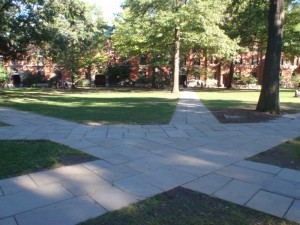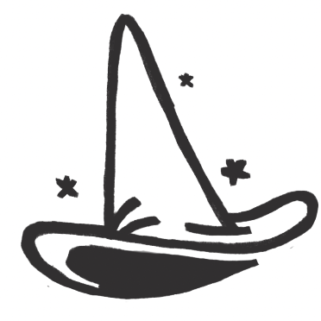
Perhaps I will be a teacher when I grow up.
I taught this summer—and it was wonderful. There was Ryder, who’s tiny, and writes with neat handwriting, and Jenna, who walks that fine line between popular and kind. There’s Raheem, who, at eleven years old, is an adorable lump, and Jorge, who doesn’t know how to be cool, who has the most earnest eyes and the most staggering optimism.
When you’re a teacher, each day brings rollicking surprise and comforting consistency. You read sentences about cars made out of purple pizza sauce, about instruments of cow bones that a dinosaur plays. You get used to the student who raises her hand every time, and you get used to the student who wishes he were a fly on the wall so he could just, please, listen, without being asked to speak.
I adored the children I taught. I was stunned by the curve of their learning and the depths of their hearts. I thought, daily, that I had the most wonderful job in the world, that I could do it forever.
But then came the nagging Yale Voice. The nagging Yale Voice that says, Kate, you need to run the school system. You can teach for two years – Teach For America, obviously — and then you can go to law school, and then you can be the superintendent….
This is the voice that puts the word “just” before the word “teach,” the voice that asks if it’s the “best use” of my education, the voice that suggests that I’d be bored by the daily grind of a seventh grade classroom.
But teaching is harder than Yale exams. Teaching is the hardest job I’ve ever done. You need to be on. You need to be on from the moment you walk in at eight thirty, thinking you’ve got half an hour until the kids come—and then realizing they’re already arrived. You need to be on at lunch. You can’t just corral and silence them, because you want them to talk. You want to smile enough—but not too much—and you want to be real, but not like a friend. You can’t swear. You lose your first name. You’re trying to keep up with this flock of chatty human hummingbirds, and your feet hurt. You wonder if they won’t learn if you make jokes. You wonder if they won’t learn if you’re too serious. You wonder if they won’t respect you if you are too kind; you wonder if they’ll hate you if you’re stern. You can’t go out at night. You’ve got to sleep. You get home hungry, and tired, wishing you had the energy to run, or to talk, but you are beyond exhausted. And in the morning, it all begins again.
***
Or maybe, I’ll be a writer when I grow up. I think writing is a high form of magic. A writer gets to send pictures to your head, like telepathy. A writer can conjure those slippery sliver-memories: she can bring you the wet-fresh summer camp art room, the lemon-salt air of a laundry machine, the spice of your aunt’s kitchen.
So I proudly told a friend the other morning that I would bartend when I graduated from Yale.
I was as bold as Kerouac. I told him I’d travel the country, hitting up six states in one year, six new bars. I’d stand each evening pouring drinks and drinking in stories. I’d write by day, observe by night. I’m not sure when I’d sleep, or where. I would eat peanuts and pretzels for meals. I’d have bags beneath my eyes. My hair would get curlier, messier, and my clothes might fray. I felt brave just thinking about it.
Fifteen minutes later, sitting in lecture, I started to fill out an application for Bain & Company—a multi-national management consulting firm. I couldn’t even wait until class ended. And while I ignored my professor’s lecture on 19th Century Mexican immigration, I crossed the border between Dreams I Have and Goals I Don’t Quite Understand. Before I was even finished listing my previous employment history for Bain, I had opened up an application for Boston Consulting Group, too. I’d been getting emails about them for weeks—it felt concrete and proactive to plug myself into the forms online. Something about them felt safe. I could imagine the skyscraper I’d work in, as a consultant. I could imagine the outfits I’d wear. I know people who do it. I know people who love it. I figured that, in theory, I could love it, too. And it seemed so together.
But in my three years of college, I’ve dropped out of Intro Economics and First-Order Logic. I think I’d be sad that I couldn’t title the “incentives” section of a management case report “Good things!” and that there wouldn’t be time to hear the ‘highs and lows’ of all my co-workers’ days amidst the New York abustle. I think I’d get lost in imagining stories about my clients—wondering whether or not the CEO of the Nature Conservancy we’re working for has a favorite place in Central Park. I think I might end up turning a page of 000,000,000’s into cute little centipede armies. It’s not that I can’t do serious work. It’s just that, a lot of the time, I want my serious work to be correcting Tales of Centipede Armies, by Josh, Grade 3. I want it to be writing a novel about a high-up executive who meditates at lunch in Central Park.
But I’m still uncertain. Am I following my heart, or am I just postponing adulthood—merely playing with words, teaching stories to children?
***
A few weeks ago, science journalist Robin Marantz Heing, in her New York Times feature “What Is it About Twenty Somethings?” wrote that we young folks are curly-queing our way past the “lockstep march toward adulthood” that our parents may have expected. Jobs are harder to find. We have broken the go to school, get a job, get married pipeline of the past. Blogs, radio shows, newspapers and magazines joined the conversation. Everyone was talking about our broken career ladders, our uncertain futures, our supposed fancy-free vision about growing up. Heing did not tell me whether or not I wanted to be a teacher, or a writer, or a consultant. She did not tell me much that I didn’t already know. But Heing assured me that, in my uncertainty, that I was normal.
For most of us at Yale, it’s not that we’re uninterested in getting a job. We are, in general, quite motivated, and pretty damn stressed about finding something to do after senior year. It’s just that we’re not ready for our Final Answer. We’re convinced we don’t need the job just yet—rather, we’re looking ahead to the next few years.
But we’re the exception. As soon as Heing’s article had come out in the New York Times Magazine, been analyzed on Slate, and discussed on National Public Radio, folks made the point that these were elite journalists and scholars talking about a very small pool of Americans. Center for American Progress blogger Matthew Yglesias, for instance, wrote that the deluge of media coverage was myopic. He argued that Heing’s argument applied only to graduates of selective universities—that, for the majority of Americans, getting a job to support oneself or one’s family was enough, and that “finding oneself” while exploring a few career paths was just not an option.
Yglesias rightly nabs the unfair privilege of Yalies. We’re graduates of one of the lauded institutions of the East, where just forty years ago, smart meant rich and diverse meant Congregationalist; here at Yale, we are cushioned by a legacy of prestige, manuscripts, and ivy. Our college lives are full of options. Instead of picking classes, we “shop.” We get two weeks to hone down our neurotic/lovely wish lists and spreadsheets from twenty classes to eight, then eight to five. If, when the semester starts, there’s one we don’t like, we can usually drop it. Choices abound, and they don’t stop at academics. Be you a poet, politico, or prankster, a gamer or a goalie, an actor or artist, there’s a campus group to suit you.
We pick our suitemates.
We pick our suites.
We pick our meeting times on Doodle polls, and if we don’t like them any more, we switch them with a last-minute text.
We pick our dining halls – Commons? Calhoun? Hall of Graduate Studies? Then, falafel balls or turkey burgers?
So, when we graduate, we want to pick. We want control over which job we get. We want it in just the right city, with just the right boss and co-workers, just the right salary, just the right “fit.” But career ladders are just that—ladders; they start at the bottom—and this isn’t something we’re used to.
We’re stressed because we’re used to endless choices, and we don’t want to settle for anything less than Just Right. For the most part, we don’t have to. I’ve got time to find my Just Right. This is an unfair freedom, and I know I deserve it no more than anyone else. But I will honor it, as best I can, by doing the work that I love in this moment. I will try to help others, and I will recognize the value of my opportunity.
I’ll work with my options. I will teach about writing, I will write about teaching, I will make purple pizzas and orchestrate dinosaur bands. And I will, I hope, be happy.


